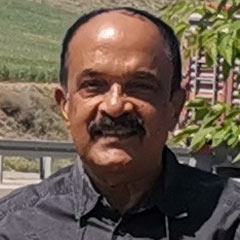It’s Human to Travel

Mail This Article
There was a cartoon in the New Yorker magazine years ago: a glum, long-haired and bearded guy in a robe asks the grim, spectacled lady at the travel desk: 'Who am I? Where am I going?’ That man is the ultimate traveller. He’s asking the final question. I would’ve loved to hear the lady’s reply.
And here’s a telling statement from the great American novelist and incorrigible wanderer, Mark Twain, about some special benefits of travel:
‘Travel is fatal to prejudice, bigotry, and narrow-mindedness, and many of our people need it sorely on these accounts. Broad, wholesome, charitable views of men and things cannot be acquired by vegetating in one little corner of the earth all one's lifetime.’
Mark Twain said this 150 years ago. It’s absolutely true even today. Because prejudice, bigotry and narrow-mindedness haven’t gone away. Travel can be a great therapy for the soul afflicted by such maladies. It can help us, as Mark Twain said, to get rid of our one-sided, patronizing, intolerant, view of everything that’s not of our own little world. But then we need to travel with our eyes and ears open and stop being judgemental. If only it was that easy!
I know why I love to travel. Firstly, I’m very curious about the world out there. It was the great Indian writer SK Pottekkat who sowed the seed of travel in me. His spell-binding travelogues set me dreaming, as a boy, about faraway places, sitting in my village Urulikunnam in the foothills of the Western Ghats.
Then into my life came the legendary ‘National Geographic Magazine,’ sent by my pen-friend in the US. It fuelled the fire of my yearning. (Its print edition shutdown Iast year after 135 years of glorious existence.)
I remember, on my first visit to Assisi, Italy, climbing to Rocca Maggiore, the imposing fortress that looms over the little town. I kept thinking to myself: I’ve seen this place. I’ve been here. Then I realized: ‘National Geographic’ had taken me there years ago! Even the wild grass shaking in the wind along the battlements was the same.
Secondly, I’m swayed by history, which is my core reading. The sense of history, of all the things good and bad that happened in a particular place, transfigures a place for me; I’m sure it’s the same for many people.
Last year I was standing on the bank of the river Sydna in Tarsus, Turkey, the hometown of Paul, the man who re-imagined Jesus of Nazareth for posterity as Jesus Christ. To look at, it is just another country stream, banks overgrown with plants and grass, winding its way through the Anatolian plains (Anatolia = present-day Turkey). But my awareness that Paul – the man who changed the destiny of the Western world -- had gazed at this river and perhaps bathed and washed his clothes in it, made the river a magical entity in my eyes. It came alive for me in an enchanted dimension. Suddenly I was a time-traveller.
I knew more about the river. In the year 333 BCE Emperor Alexander had invaded Anatolia and was marching through Tarsus. Unable to bear the heat, the 23-year-old emperor took off his clothes and jumped into the river whose temperature was below freezing, because the water came from melting snows. His body received a massive shock when it hit the freezing water. He was paralyzed and about to sink, but his soldiers jumped in and rescued him. Who knows, I told myself, perhaps it was right from this spot where I stood that Alexander jumped. That’s the bewitchment of history.

I also knew that it was on Sydna (called Cydnus, then), according to the Roman historian Plutarch, that Mark Antony in 41 BCE met Cleopatra for the first time, as she arrived in all her majesty in Tarsus on a golden barge. As I stood on the river bank, history and memories merged to adorn it with the golden glow of storied past.
Travelling is easier said than done. It needs – the least minimum - three basic resources: money, time and health. The first two are, in general, always in short supply for the average person. As for health, you either have it or you don’t.
No travel is cheap. What is called cheap is only comparatively cheap. Is it any wonder then that the global transportation industry is worth USD 7.31 trillion. (Incidentally, 1 trillion USD is Rs 8,36, 11,30,00,00, 000.) Even global military expenditure is only 2.24 trillion! Finding the time for travel is perhaps the hardest part. For most people, precious holidays, on which there are endless demands, are the only available slots. The choice is hard.

When I travel, I turn myself into an alien who’s discovering planet Earth for the first time -- but on a shoestring. (I’m sure there are aliens who aren’t rich and need to be on a shoestring.) For the alien everything it sees and experiences on Earth is new and exciting.
The dictionary says ‘shoestring’ means, ‘do something with a very small amount of money’. I’ve been a shoestring traveller ever since I ventured out of India for the first time in 1988, equipped with a handbook, ‘Europe on a Shoestring’. Shoestring doesn’t mean going hungry, dirty, sleepless and burnt-out. It only means sticking to the bare essentials. It is opting for cleanliness, comfort, safety and convenience at minimal cost. All these, anyway, are fine details. At the end of the day, it’s the very act of travelling itself that’s the amazing reward. Travel when you’re young, travel when you’re old. Travel like a king if you wish. It’s human to travel. The more you travel the more human you become.
Next: In Mao's Ancestral Home
Paul Zacharia is a well-known Indian writer and columnist.




